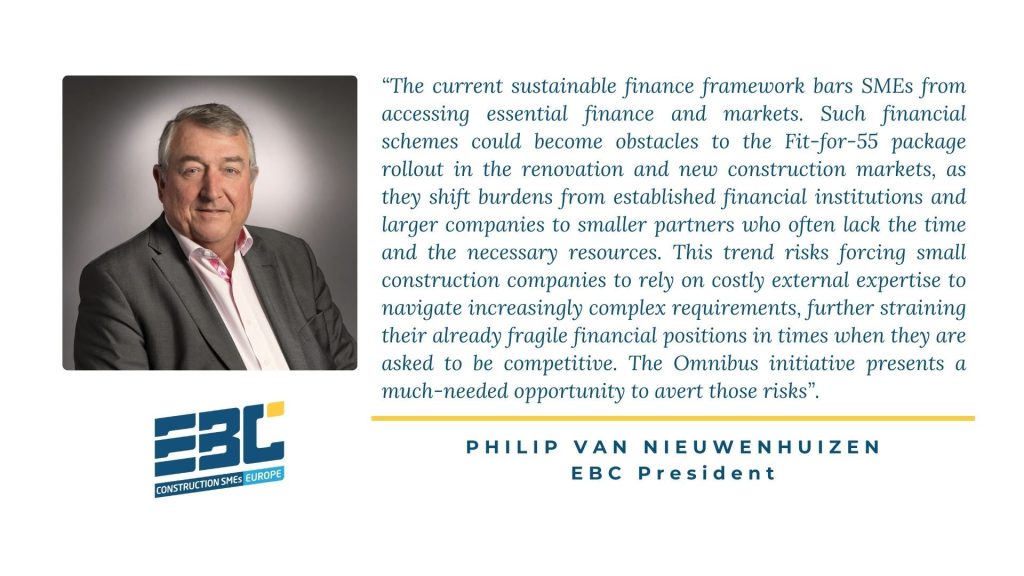
Omnibus Simplification Package: EBC position paper for a more SME and construction-friendly CSRD, Taxonomy and CSDDD
February 5, 2020
The European Builders Confederation (EBC) welcomes the European Commission’s initiative towards a Omnibus Simplification Package, aimed at easing sustainability reporting for small businesses. Representing over 300,000 construction SMEs across Europe, EBC was invited by the Commission to participate in the launch of this initiative.
EBC urges the Commission to ensure that recent and new regulation do not make it harder for SMEs to run their businesses, access finance, or invest in their green and digital transition. This includes the Corporate Sustainability Reporting Directive (CSRD), the EU Taxonomy, and the Corporate Sustainability Due Diligence Directive (CSDDD).
The construction sector makes up 10% of the EU’s GDP and consists of 94% micro-enterprises. These face complex, time-consuming and costly reporting requirements, despite exemptions in theory. Revisions to the CSRD, Taxonomy and CSDDD are thus needed to reflect the sector’s realities and ensure SMEs are not indirectly excluded from financing opportunities.
In its position paper, EBC calls for the Omnibus Package to make sustainability reporting easier for construction SMEs, without excessive paperwork and costly dependencies on external bodies.
EBC notably calls upon the European Commission to:
- Ensure the Voluntary Sustainability Reporting Standard (VSME) is binding and universally accepted by enshrining it in the CSRD.
- Limit and streamline reporting obligations, without extra demands toward SMEs from financial institutions or larger companies.
- Avoid additional costs for SMEs by ensuring that VSME data does not require further audits or certifications.
- Envisage postponing CSRD reporting obligations for one year, allowing SMEs time to adapt as SME-friendly tools for reporting are not yet available.
- Integrate construction expertise in Taxonomy implementation to better address sector-specific challenges.
- Revise the EU Taxonomy to better incentivize energy-efficient renovations, including for buildings with lower energy performance ratings.
- Clarify the scope of the CSDDD as excluding SMEs from unnecessary obligations.
- Align definitions between CSRD and CSDDD to provide legal certainty, especially concerning value chains.
- Use existing data and apply the “tell once-only” principle to ease the reporting burden.
“The current sustainable finance framework bars SMEs from accessing essential finance and markets. Such financial schemes could become obstacles to the Fit-for-55 package rollout in the renovation and new construction markets, as they shift burdens from established financial institutions and larger companies to smaller partners who often lack the time and the necessary resources. This trend risks forcing small construction companies to rely on costly external expertise to navigate increasingly complex requirements, further straining their already fragile financial positions in times when they are asked to be competitive. The Omnibus initiative presents a much-needed opportunity to avert those risks” says EBC President, Philip van Nieuwenhuizen.
For more detailed elements, read the full EBC position paper on the Omnibus Simplification Package of the European Commission (CSRD, Taxonomy & CSDDD): click here.
